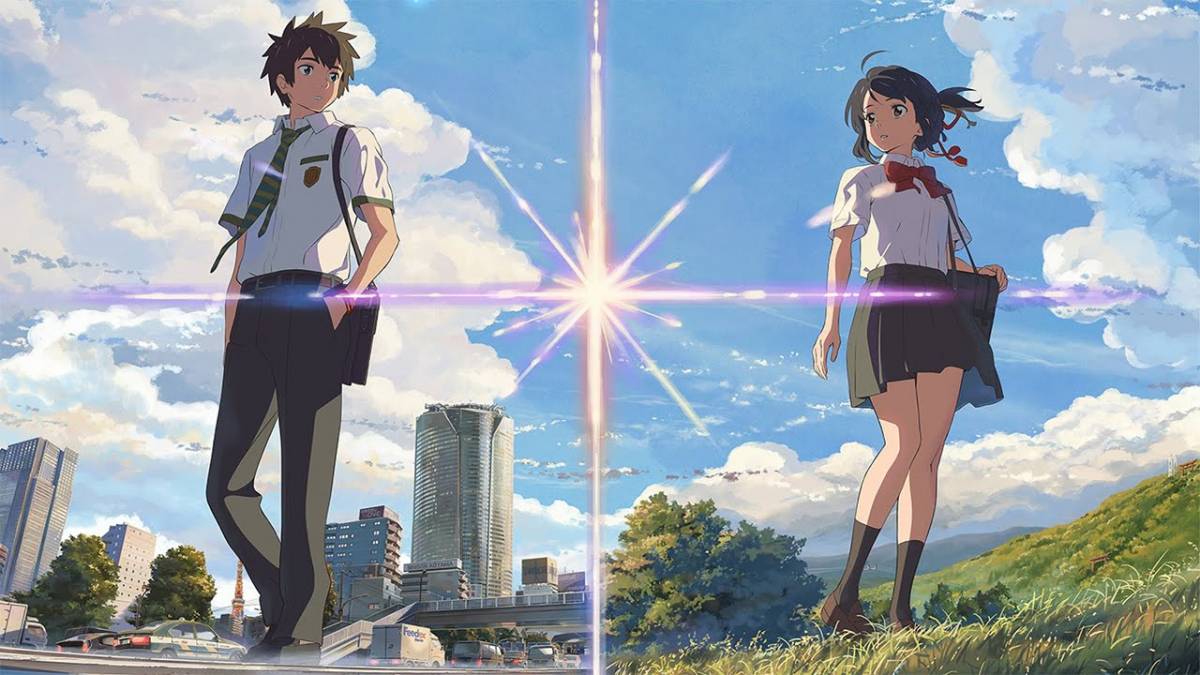“The day a star fell from the sky. It was like a dream. Nothing more nor less.”
So starts Kimi No Na Wa (Your Name). A film that sent a shiver down my spine within the first minute – an incredible achievement, but a sensation that occurred a few times in its 112 minute runtime.
Makoto Shinkai, the crackerjack auteur behind films such as 5 Centimeters Per Second and The Garden of Words, has created his first masterpiece. A film so visually exquisite that it is almost peerless.
Not that this is all that surprising when you look his previous films that all contained similarly vibrant and evocative art styles. Every second the viewer will be smacked with a smattering of rich, meticulously detailed shots that it borders on dizzying.
Yet, Shinkai never lets images linger, quickly cutting to another equally sumptuous shot. In previous films, Shinkai had been accused of focusing more on visuals than on the story and, unfortunately, this was the case. This isn’t true for Your Name, though, as the story and the voice acting are equally as important.
Kimi No Na Wa tells the red string of fate story of Taki and Mitsuha who start switching bodies due to a supernatural phenomenon that occurs in fictional city Itomori.
The film changes focus between the two leads as they come to terms with the fact some days they will wake up in the other’s body, having to deal with the problems being the other gender could create.
https://www.youtube.com/watch?v=hRfHcp2GjVI
Eventually, they set some humorous ground rules such as not fondling her breasts, spending all of his money or acting in an innocuous way. Both benefit from the differences in their personalities and learn to co-operate with one another so that each benefit from the situation.
These types of narrative can be difficult to pull off as viewers could easily become lost under a myriad of confusing temporal details, or the film could fall into well-worn clichés. Neither occurs. The switch never feels forced nor jarring. Much like the visuals, Shinkai moves the story along quickly, never allowing a scene to drag, but just long enough that viewers can appreciate each scene.
The Japanese band RADWIMPS score the film to perfection, adding a bouncy soundtrack that compliments the action on screen, ramping up excitement during key moments. Unfortunately, even though the Japanese version is great, the same can not be said about the English dub that fails to capture the nuances of the characters and the high-pitched, emotionless voice acting of the two leads detracts from the experience.
Even more bafflingly, the wonderful soundtrack has been dubbed by the same band for the English release, bastardizing their own music to the point where it became unlistenable.
The only other half-hearted qualm that I can make about the Japanese release is that its runtime went by in a blink of an eye. If you can criticise a film for this reason, then dock a point off the score. If not, get ready for one of the few animations that can be compared to a Miyazaki film.
If you want to watch this film, look out for the subbed version, rather than the dubbed one.
Some of the coverage you find on Cultured Vultures contains affiliate links, which provide us with small commissions based on purchases made from visiting our site.

